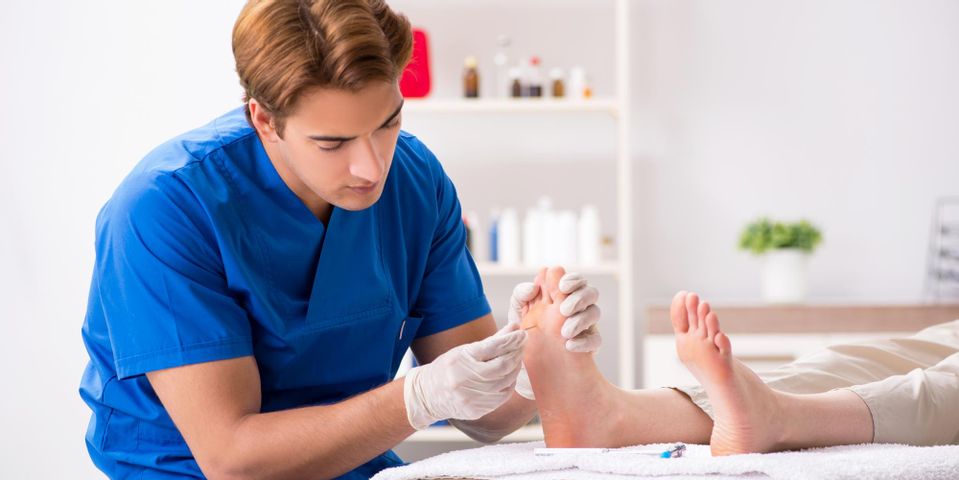Do's & Don'ts of Diabetic Foot Care

Individuals with blood sugar issues must use extra precaution with diabetic foot care. People with this condition are prone to problems like nerve damage, ulcers, and neuropathy, usually manifesting in the feet. Below are a few do’s and don’ts to diagnose and prevent symptoms.
Do:
Inspect your feet regularly.
Assess your heels, toenails, between the toes, and underneath the feet every day. Look for swelling, discoloration, or injuries that may be symptoms of blood sugar problems or related conditions.
Use a writing utensil to test your foot for potential nerve damage. Start by carefully poking different sections of the foot, including each toe, the top, and the bottom. If you don’t feel anything from the poke, this condition is known as neuropathy and may occur when uncontrolled blood sugar weakens the blood vessels. Seek a diabetic foot care specialist immediately about tingling or numbness in the toes.
Wash your feet daily.
While performing your daily inspection, use a mild soap and warm water to wash your feet while avoiding any open sores. This simple diabetic foot care step will keep the skin bacteria-free and make sure you’re preventing burns by using warm water instead of hot.
Don’t:
Skip shoes.
 Diabetic people are more likely to have bunions and ulcers. Protect your feet by always wearing shoes.
Diabetic people are more likely to have bunions and ulcers. Protect your feet by always wearing shoes.
Use supportive pairs that feature customized insoles when leaving the house, and switch to supportive slippers when you’re inside. This simple step will prevent you from injuring the foot and limit pain from walking barefoot.
Moisturize between the toes.
The skin between the toes is often sweaty and contains considerable bacteria. Adding a moisturizer may fuel an infection that can quickly worsen since the skin is vulnerable. Apply lotion to the top and bottom of the foot and the ankle. Then, dust the toes with baby powder to soak up moisture and prevent infection.
If you’re looking for a diabetic foot care professional, contact St. Peters Foot & Ankle: Samuel T. Wood-DPM in St. Peters and Florissant, MO. The podiatry team features Dr. Wood, a board-certified foot doctor who can address issues like circulatory problems, bone malformations, and medical complications. Visit the website or call the St. Peters clinic at (636) 720-0190 for information on their services for diabetics, including addressing ulcers, neuropathy, bunions, and calluses.
About the Business
Have a question? Ask the experts!
Send your question

